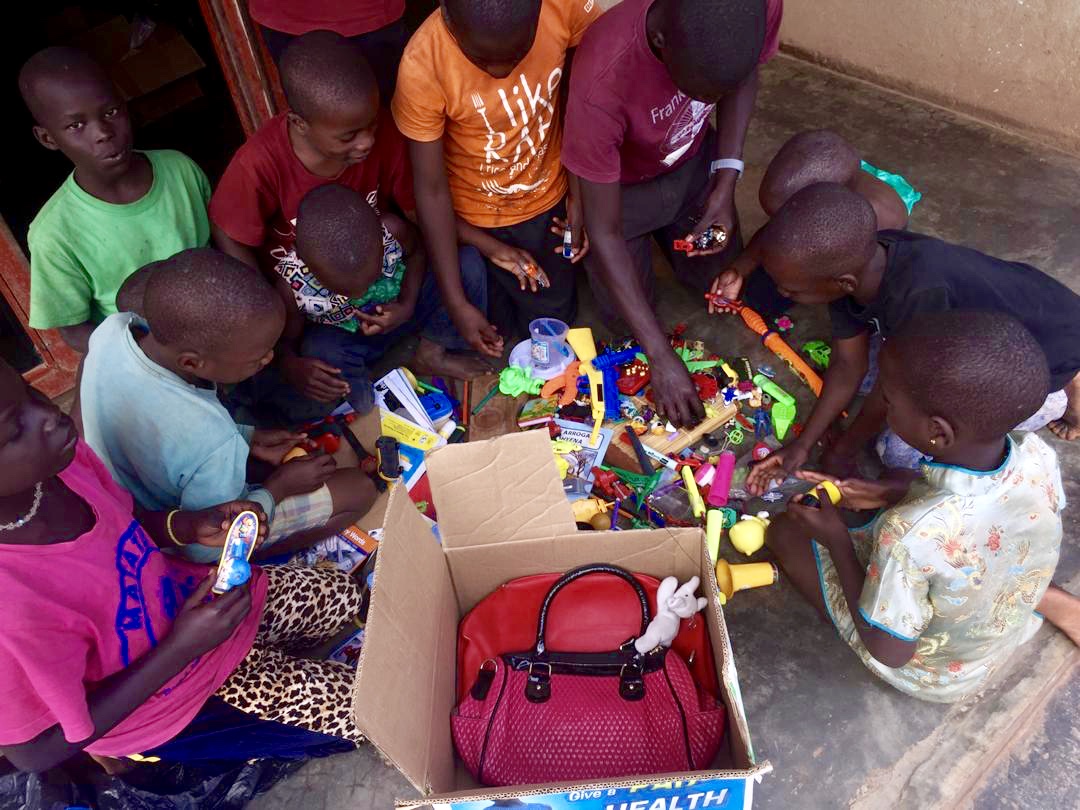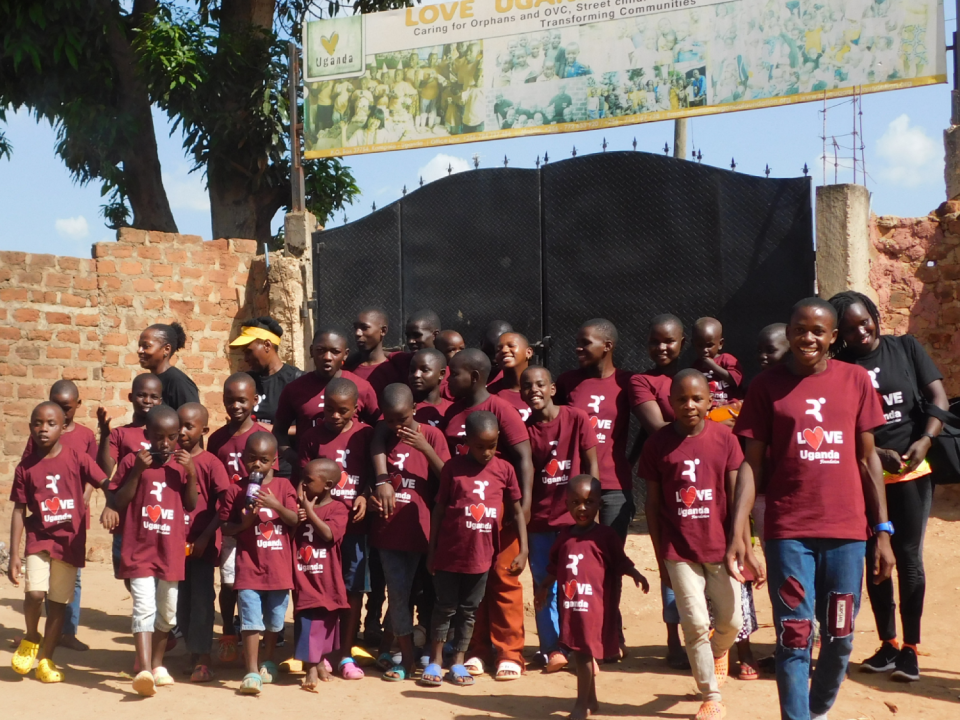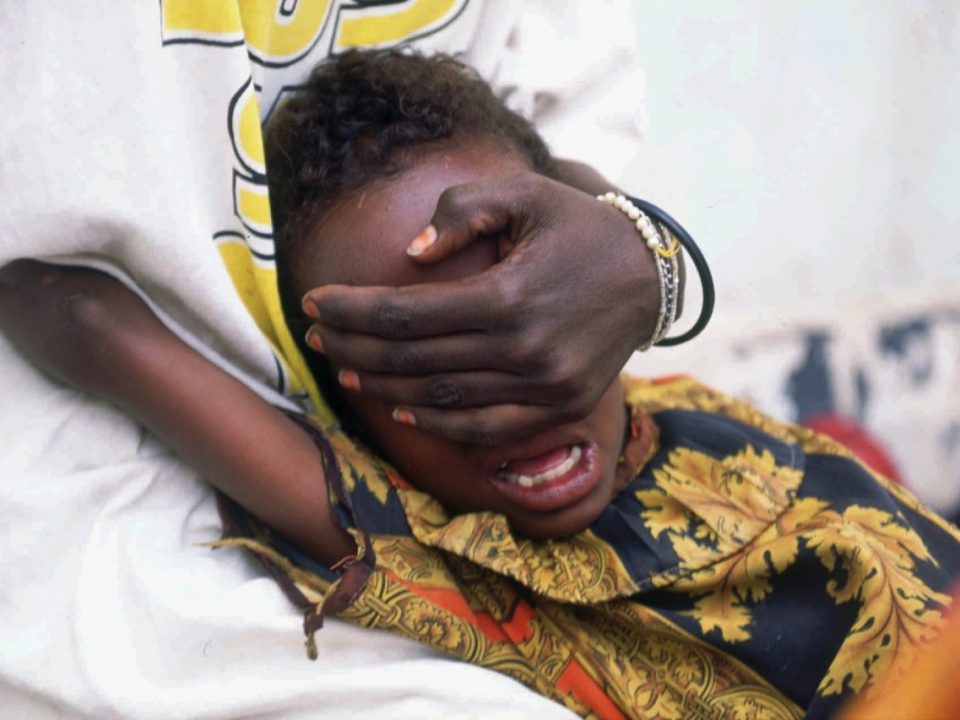CHILD PLAY: VERY VITAL FOR ALL CHILDREN
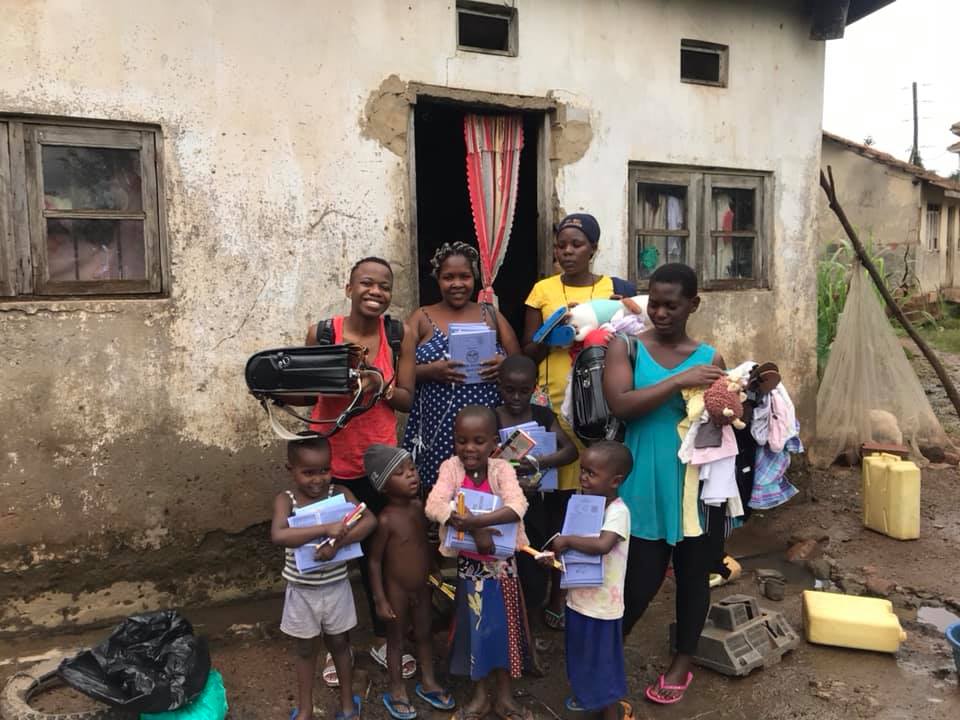
FAMILY OUTREACH IN BUDDO NAKASOZI
November 28, 2019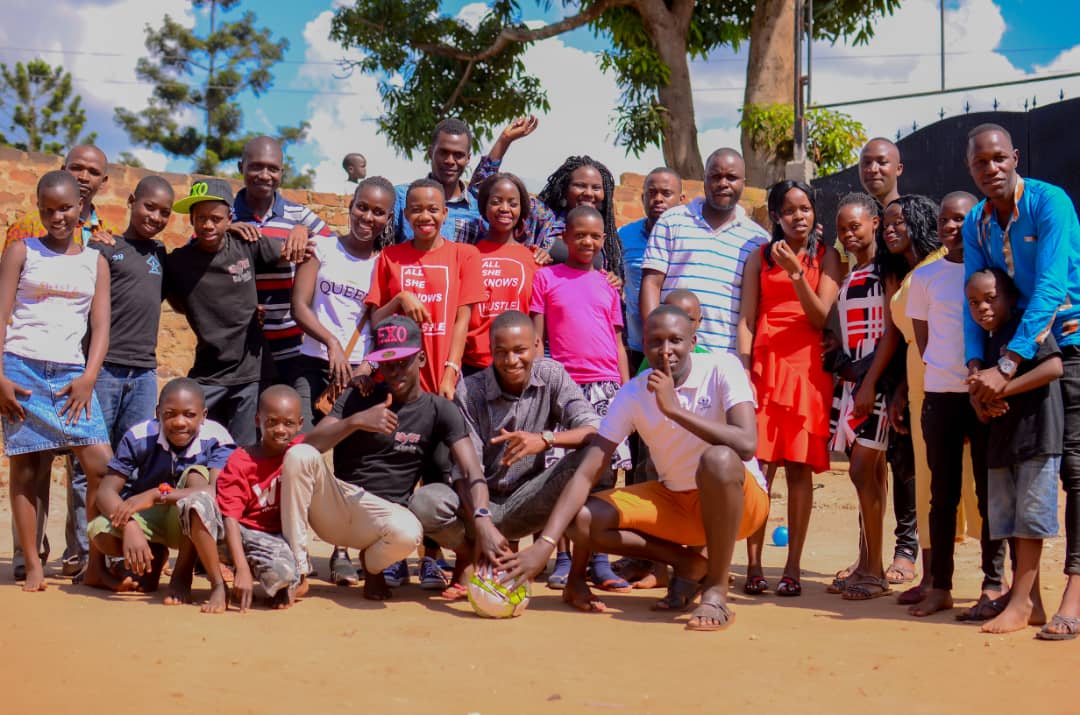
LOVE UGANDA FOUNDATION END OF YEAR PARTY 2019
January 2, 2020Nothing is as natural as child play. After a month of little more than eating and sleeping, infants begin to engage in play with their parents and the world around them.
Left alone, young children will launch into imaginary play, inventing characters and stories. Put together with peers, children will almost instinctually organize games and activities.
Child play is so basic to childhood that it is seen even among children in the most difficult conditions, in orphanages, the disabled, poor and town streets. It is so important to the well-being of children and should be recognized as a fundamental human right, on par with the rights to shelter and education.
However it is of absolute sadness that most of these poor children in Uganda have barely had a chance to engage in play during their tender age since they tend to spend most of their time in misery, crying and isolating themselves from others. They filled with depression due to loss of parents and fear of uncertainties that hold them to the past.
It further more gets worse when it comes to communication, by the fact that these children feel isolated, they will hardly get involved in easy communication with others. They would prefer remaining silent than talking to any other person which affects them more psychologically, socially, mentally, physically and emotionally.
Play is important because it allows children to use their creativity while developing their imagination, dexterity, and physical, cognitive, and emotional strength, it is simply vital to the healthy brain development.
It is through child play that children at a very early age engage and interact in the world around them. Child play allows children to create and explore a world they can master, conquering their fears while practicing adult roles, sometimes in conjunction with other children or adult caregivers.
As they master their world, child play helps children develop new competencies that lead to enhanced confidence and the resiliency they will need to face future challenges. Undirected play allows children to learn how to work in groups, to share, to negotiate, to resolve conflicts, and to learn self-advocacy skills.
When child play is allowed to be child driven, children practice decision-making skills, move at their own pace, discover their own areas of interest, and ultimately engage fully in the passions they wish to pursue.
Ideally, much of the child play involves adults, but when play is controlled by adults, children acquiesce to adult rules and concerns and lose some of the benefits play offers them. Particularly in developing creativity, leadership, and group skills.
In contrast to passive entertainment, play builds active, healthy bodies. In fact, it was suggested that encouraging unstructured play may be an exceptional way to increase physical activity levels in children, which is one important strategy in the resolution of the obesity epidemic. Perhaps above all, child play is a simple joy that is a cherished part of childhood
Every child deserves getting a chance to play regardless of the situation, whether orphans in Uganda, street children in Uganda or any other vulnerable category of children.
You can help little young children enjoy their childhood through donating toys, balls, play cards dolls and many more other playing materials to enable a healthy child growth and development in these children.


